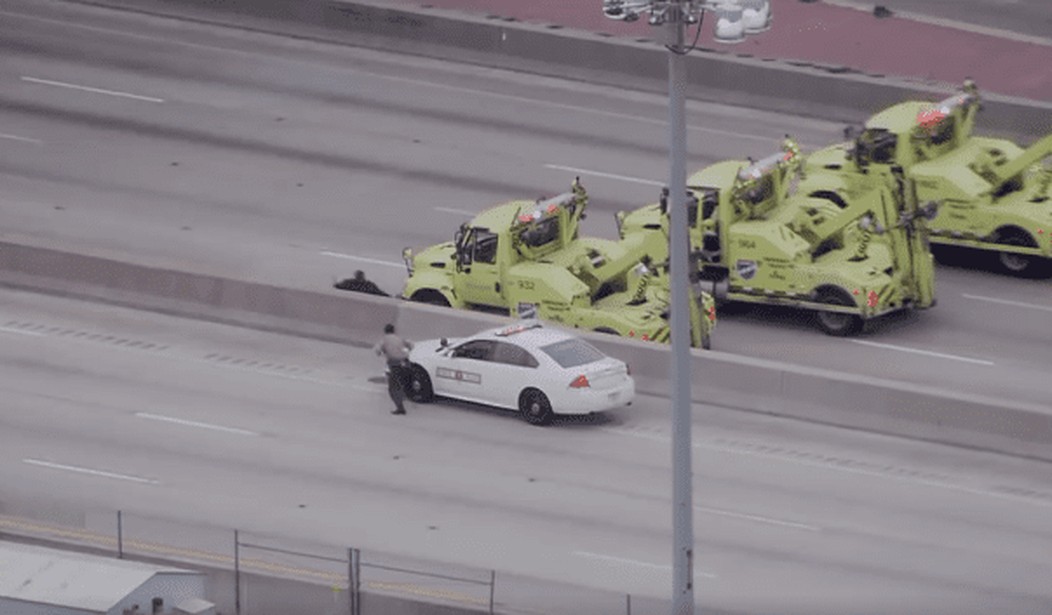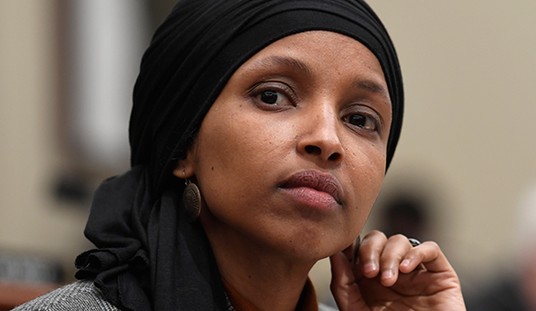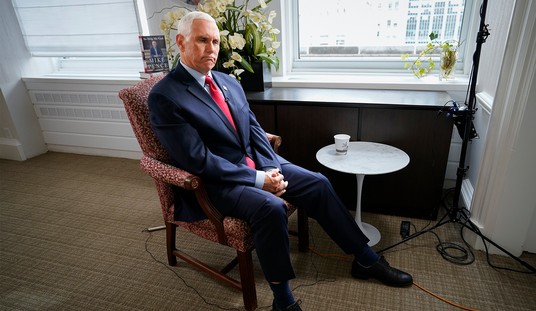The government of Iraq teeters on the brink of collapse and a state of emergency has been declared after thousands of supporters of Shiite cleric Muqtada al-Sadr stormed the Green Zone in Baghdad today and occupied the parliament building:
Hundreds of protesters climbed over the blast walls surrounding Baghdad’s highly fortified Green Zone for the first time on Saturday and stormed into parliament, carrying Iraqi flags and chanting against the government.
The breach marked a major escalation in the country’s political crisis following months of anti-government protests, sit-ins and demonstrations by supporters of influential Shiite cleric Muqtada al-Sadr. The Green Zone is home to most ministries and foreign embassies and has long been the focus of al-Sadr’s criticism of the government.
Earlier Saturday, al-Sadr accused Iraqi politicians of blocking political reforms aimed at combating corruption and waste. While al-Sadr didn’t call for an escalation to the protests, shortly after his remarks, his supporters began scaling the compound’s walls. A group of young men then pulled down a section of concrete blast walls to cheers from the crowd of thousands gathered in the streets outside.
Various video feeds from inside the Iraqi parliament have been posted:
Live video from the floor of Iraq’s parliament in Baghdad.https://t.co/QacRBjnspL
— Ben Kesling (@bkesling) April 30, 2016
Iraqi MPs we are speaking to are all pretty terrified. Some still trapped inside parliament. Laying the blame on Abadi.
— Loveday Morris (@LovedayM) April 30, 2016
The Carnegie Endowment has a good overview of the Iraqi political crisis. Sadrist are also blocking the roads to the Baghdad International Airport to prevent Iraqi politicians from fleeing the country:
Large numbers of Iraqi officials seen evacuating Iraq via Baghdad airport after Sadrist elements enter Green Zone https://t.co/srLFaiFcoz — Elizabeth Murray (@elizabethmurra) April 30, 2016
#BREAKING: Baghdad airport blocked by protesters to prevent corrupt officials from fleeing the country. pic.twitter.com/f3IBjHF2Ad — Rudaw English (@RudawEnglish) April 30, 2016
One U.S. spokesman had to take to Twitter to deny that Iraqi politicians were seeking refuge inside the U.S. Embassy:
From @USEmbBaghdad: Reports of officials or anyone else seeking refuge at the US emb are false. https://t.co/mZF5uEaM9z — COL Steve Warren (@OIRSpox) April 30, 2016
Reinforcements sent 2 #US embassy after #Sadr supporters storm #GreenZone, AlArabiya. The latest #Iraq “revolution” might very well b here.
— Mohammed A. Salih (@MohammedASalih) April 30, 2016
Those of us old enough to remember the Iranian Revolution in 1979 can see striking similarities.
Frameworks used thus to describe events in Baghdad: “Great Revolution”; “Popular Uprising”; “Great Uprising”. Sadr used all three today.
— Republic of Sumer (@Sumer_Iraq) April 30, 2016
Muqtada al-Sadr is no friend of the U.S. and his Iranian-funded Mahdi Army was responsible for the deaths of a number of U.S. soldiers and servicemen in Iraq. Even after the U.S. military departure from Iraq, Sadr has threatened attacks against the U.S. if any type of recognition of Kurdistan or Sunni-controlled areas by the U.S. government were to occur. Bill Roggio of The Long War Journal explains the militias Sadr has under his control:
Sadr controls two militias inside Iraq: the Saraya al Salam, or Peace Companies (often called the Peace Brigades), and the Liwa al Yaom al Mawood, or Promised Day Brigade. Both groups are offshoots of the Mahdi Army, Sadr’s militia that fought US forces in pitched battles in Baghdad and central and southern Iraq between 2004 and 2008. Sadr purportedly disbanded the Mahdi Army in the spring of 2008 after US forces battled the group in Baghdad’s sprawling neighborhood of Sadr City, and created the Promised Day Brigade.
Sadr created the Peace Companies after the Islamic State overran most of northern and central Iraq beginning in June 2014. In February 2015, he purportedly suspended the activities of the two militias, however the groups have been spotted fighting in Iraq since then. Sadr also frequently claimed to have halted the activities of the Mahdi Army during the US occupation, but these ceasefires rarely held.
While Sadr has denied receiving Iranian support, the US military and government consistently stated that his forces have the backing of Qods Force, the special operations branch of Iran’s Islamic Revolutionary Guards Corp. US military officials called the Iranian-backed militias who battled American forces up until 2011, such as Hezbollah Brigades and Asaib al Haq (League of the Righteous), the Mahdi Army Special Groups. With the backing of Qods Force, Sadr’s militias maintain the ability to strike US interests in the Gulf region and the Levant.
It bears mentioning that Vice President Joe Biden was just in Baghdad to meet with Prime Minister Al-Abadi two days ago:
Iraqi Prime Minister Haider Al-Abadi welcomed Joe Biden to the Iraqi government palace https://t.co/RzYTAxI5qs pic.twitter.com/0feoXqMP8Y
— FB Newswire (@fbnewswire) April 29, 2016
The collapse of the Iraqi government or a continuation of the political stalemate will reflect poorly on Barack Obama’s decision to remove U.S. troops from Iraq at the end of 2011 just prior to his 2012 reelection campaign.
During the 2012 campaign he took credit for the move, but as Iraq continues to devolve under multiple pressure points, including the presence of ISIS in the north and west of the country, he has blamed Iraqi authorities for the American withdrawal.









Join the conversation as a VIP Member